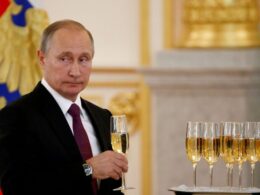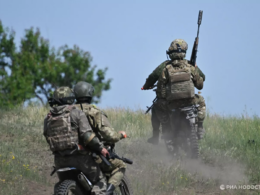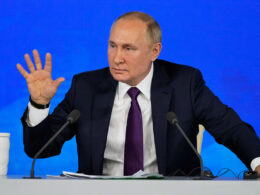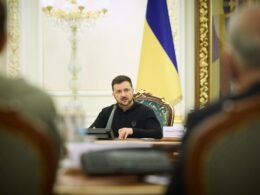Russia shows no sign of stopping hostilities in Ukraine. EU ambassadors have approved the 17th package of sanctions against Moscow to compel it to reach a peace deal with Kyiv.
On 10 May, Ukraine, France, Germany, the UK, and Poland proposed a 30-day unconditional ceasefire starting 12 May. In the event of refusal, Ukraine’s allies intended to impose tough sanctions on Russia. Russian troops have not stopped fighting. Still no measures have been introduced. Earlier, Vladyslav Vlasiuk, the Ukrainian president’s sanctions advisor, said Russia has lost at least $150 billion due to sanctions but still manages to maintain its military power.
The final decision now rests with the Council of the European Union. Meanwhile, the Kremlin is reacting with increasing aggression, even deploying military aircraft to shield its "shadow" oil shipments.
Roman Steblivskyi, head of the sanctions direction at the Trap Aggressor project, a project investigating Russian sanctions evasion, emphasizes that despite Moscow’s public indifference, Russia is feeling the pressure, and this is no longer just about the economy but about the survival of its war machine.
Tanker under cover: Baltic Sea incident
A recent episode in the Baltic Sea is telling: Estonian authorities tried to detain a Russian tanker sailing without a flag, and Russia responded by sending a fighter jet to circle above the vessel. According to Steblivskyi, this shows that EU countries are turning to creative enforcement, and the Kremlin is clearly on edge.
“The fact that Russia is defending these tankers with fighter jets says a lot. This is no longer just trade — it's about protecting the infrastructure that fuels their war,” the expert explains.
Sanctions already hurting
Russia has recently sought to negotiate with the US to lift sanctions on its civil aviation and financial sectors — a clear sign of vulnerability. Moscow is struggling with aircraft maintenance, cross-border payments, and logistics.
The latest EU sanctions are already paralyzing entire sectors of the Russian economy. For example, after the EU banned chromium exports to Russia, a Russian plant had to halt operations due to disrupted supply chains. And that’s just one of many examples.
“Restrictions on dual-use goods, financial transactions, and logistics are punching serious holes in Russia’s system,” Steblivskyi concludes.
What’s Next? If the EU Council approves the package, Europe will continue ramping up pressure on Moscow. Russia is finding it harder to hide how deeply it is affected, even on an "invisible front" of economic warfare.





